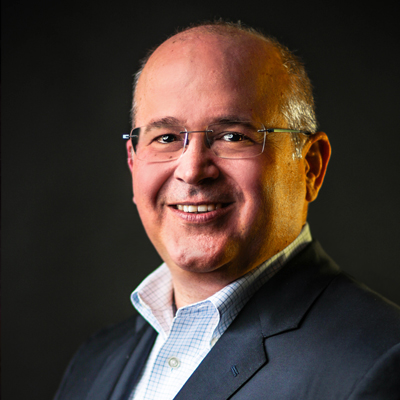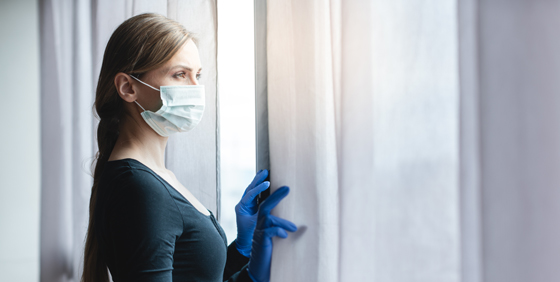For those of us practicing shelter in place and social distancing, it has allowed time to do things we’ve been meaning to get caught up on in life: shows we wanted to watch, books we’ve wanted to read, removing clutter from our lives, the list goes on. One thing it has given me is more time to think about the future and what the landscape of the healthcare industry may look like post the current crisis.
When I speak to CEO’s and ask what worries them most? More times than not, it is not the day to day viability of the organization that occupies them. It is where the organization needs to be positioned in 1,2 and 3+ years for continued success (or even survival). This becomes even more difficult with the current crisis and the number of unknown variables mounting daily.
Personally, I believe we are in the early stages of this crisis at a macro level. If I were to compare it to a baseball game, I’d say we are in the second or third inning. The reason baseball serves as a good analogy is that it is one of the few sports not governed by a clock. Innings, unfortunately, can last a very long time. (As a former pitcher I have lived this too often and was often the cause!) I think the current game looks something like this:
Innings 1 – 3: Navigating the Initial Surge
Innings 4 – 7: The Real Economic Fallout
Innings 8 – 9: The Cure
Let’s hope there are no extra innings or worse case we play a doubleheader.
One of the luxuries (and I don’t say that lightly) I have been given during this time is the ability to observe at a distance. I have had the ability to speak to people on the frontlines to the C-Suite across the country over the past couple of weeks. Through my conversations there are some themes starting to emerge that I believe will shift our organizational foundation and healthcare industry:
Employee Mental Health and Well-Being Becomes Paramount
Mental health prior to this crisis is something we have all discussed for years in the industry. We all knew it was a big issue and given limited resources/expertise we were able to address in pieces, sometime well and sometimes not. The urgency around this is now elevated given this crisis is impacting our caregivers. If we don’t do something around employee health and well-being, we face losing seasoned professionals in areas we can’t afford to lose as an industry.
Discovering the New Equilibrium
Your patients and consumers have changed on you quickly. I’ve seen surveys as high as 87% of people will still continue to avoid crowds after social distancing guidelines are removed. I, like others reading this, have elderly parents who are afraid to leave their house. On the other end of the spectrum, younger consumers who traditionally haven’t embraced things like a traditional PCP relationship will continue to look to other avenues for their care. We will need to quickly establish the new equilibrium:
– Face to face vs virtual demand?
– What changes will need to take place in face-to-face delivery? For the consumer? For the provider?
Providers better learn quickly who their new customers are, and by the way, saying you do telemedicine is only a small part of the equation!
Innovation from the Outside
This is something I have been advocating prior to the crisis. While ‘traditional health care’ is still very important, the real innovations and how to solve many of the points I am highlighting reside outside of traditional healthcare providers. The ‘non-traditional’ healthcare companies continue to grow and evolve quickly. Partnering with these companies may look very different in the future. If you look at them just as a ‘vendor’ you will be missing the mark and possibly even a strategic weapon. Traditional Healthcare could learn a great deal from these non-traditional healthcare companies on how to operate and serve patients in the post-crisis environment.
Rebuilding Organizational Relationships
Heads up this will be a big one. This goes way beyond a CEO saying how much they appreciate their frontline providers in a video or memo. Hindsight will be 20/20 once the dust settles from this crisis and I think traditional healthcare organizations will be in a vulnerable position. First, we haven’t seen the full economic impact of this crisis and that financial pain will ripple in the upcoming months. We have already seen across the country pay cuts, shelving of collective bargaining agreements, disregards for contracts, ‘mandated’ redeployment and other mechanisms deployed that are going to leave a scar on the healthcare industry. For organizations that already had trust and engagement issues heading into this, the hill is going to be a much larger climb. I can speculate where this all could lead, however, given all that is going on, awareness is a good start.
We will learn and evolve from this crisis as we do from all experiences in life. Things that were part of our daily life will change and new opportunities will present themselves. Healthcare has always possessed resiliency and it will be no different through and after this crisis. We all know this storm shall pass and wish everyone the best of health and to stay safe during this time.
So, to close with a baseball quote….” My motto was always to keep swinging. Whether I was in a slump or feeling bad or having trouble off the field, the only thing to do was keep swinging” –Hank Aaron

Larry Trilops
Co-Founder, Managing Partner
Larry Trilops is the Principal Advisor for Square Up Executive Search and Healthcare Advisors. Square Up is a healthcare firm that searches for leadership talent for organizations and provides advisory services to clients, focusing on ambulatory strategies, innovations, and program implementations. Our years of experience and expertise differentiates the talent and solutions we provide to clients.

